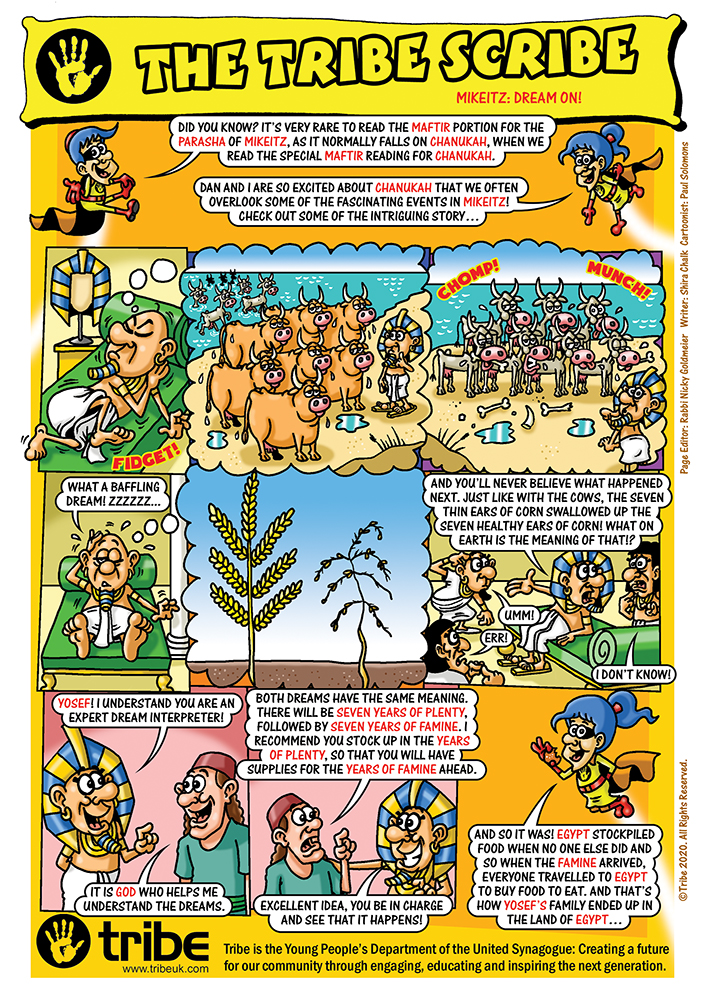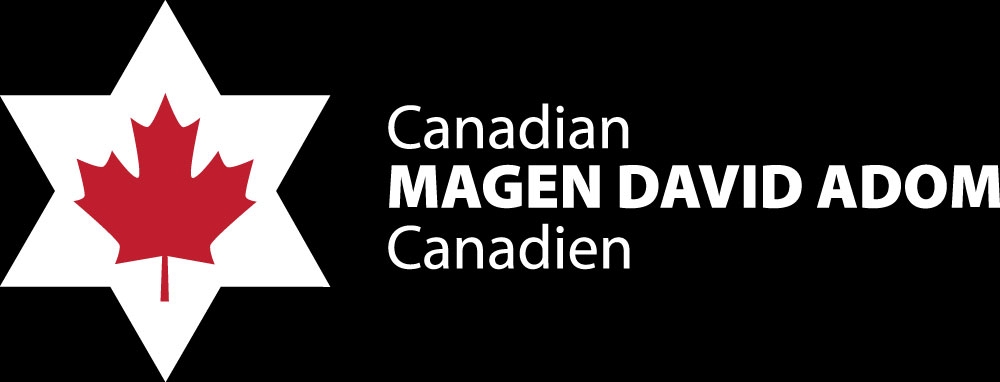Bonjour / Hello [nickname_else_first_name],
Table of contents
1) Perashat Hashavoua - Rabbi Eli Mansour
2) Halakhat Hashavoua (Halakhot related to day to day life) - Hazzan David Azerad
- The Mincha prayer-it's objective
3) Holy Jokes!
4) FOR KIDS!

This Week's Parasha Insight with Rabbi Eli Mansour
Parashat Miketz- Yosef, His Brothers, and the Ten Martyrs
Parashat Miketz tells the story of Yosef and his brothers in Egypt, the events that took place when came to Egypt to purchase grain. The brothers had previously sold Yosef as a slave to merchants who brought him to Egypt, and Yosef eventually became the second-in-command to Pharaoh, and oversaw the sale of grain to the neighboring countries which suffered from a harsh famine.
Rabbenu Bahya (Spain, 1255-1340), commenting to this Parasha (44:17) observes an intriguing phenomenon in the text of this story. On ten occasions, the Torah refers to Yosef’s brothers with the term "Anashim" ("men"). Generally, they are referred to as "Yosef’s brothers," but ten times they are called "Anashim." Rabbenu Bahya explains that the ten instances of this term in this story allude to the fact that the Tikkun ("rectification") of the grave sin of Mechirat Yosef (the sale of Yosef as a slave) occurred centuries later, with the death of the "Asara Harugeh Malchut" – the ten great Sadikim who were murdered by the Romans. These martyrs, Rabbenu Bahya writes, were Gilgulim (reincarnations) of the brothers, and their suffering completed the rectification for the brothers’ crime against Yosef. When the Torah refers to the brothers as "Anashim" ten times, it alludes to this connection between them and the "Asara Harugeh Malchut."
Earlier in his Torah commentary (38:1), Rabbenu Bahya notes the obvious difficulty with this theory, namely, only nine brothers participated in the sin of Mechirat Yosef. Yosef had eleven brothers, one of which – Binyamin – was home with his father when Yosef was sold, and another – Reuben – tried to rescue Yosef. As the Torah tells in Parashat Vayesheb, the brothers initially decided to kill Yosef, but Reuben convinced them to instead throw Yosef into a pit. Reuben’s plan was to later lift Yosef from the pit and bring him home, but in the interim the brothers sold Yosef as a slave. Clearly, Reuben did not deserve to be punished for Mechirat Yosef, and thus there were only nine brothers, and not ten, who were punishable. How, then, can it be said that the "Asara Harugeh Malchut" were reincarnations of the ten brothers?
Rabbenu Bahya suggests (as one of two possible answers) that the tenth brother who needed to be punished was Yosef himself. Although the brothers’ actions were clearly wrong, Rabbenu Bahya writes that Yosef also bore guilt, as he spoke to them arrogantly and prided himself over his prophetic dreams of leadership over them, thus provoking their envy and resentment. He, too, bore responsibility for what happened, and thus one of the ten martyrs who were viciously murdered by the Romans was a Gilgul of Yosef.
The Hida (Rav Haim Yosef David Azulai, 1724-1807), in his work Midbar Kedemot, adds that the martyr who was associated with Yosef was none other than Rabbi Akiba, the most famous of the "Asara Harugeh Malchut." Indeed, Rabbi Akiba is known in the Gemara "Akiba Ben Yosef" – "Akiba, the son of Yosef." This refers not only to the name of Rabbi Akiba’s father, but also to the fact that he was a Gilgul of Yosef. This association between Yosef and Rabbi Akiba is alluded to in the "Gabia," the silver goblet that Yosef had planted in Binyamin’s bag to make it appear as though he had stolen it from Yosef’s home. The letters of the word "Gabia" (Gimal, Bet, Yod, Ayin) can be rearranged to form an acrostic for the words, "Gilgul Akiva Ben Yosef" – "a reincarnation of Akiba Ben Yosef," an allusion to this association between Yosef and Rabbi Akiba.
A certain Kabbalist commented that each of the "Asara Harugeh Malchut" possessed a very special soul, which was equivalent to 600,000 souls of other, ordinary Jews. In total, then, the "Asara Harugeh Malchut" represented the souls of six million Jews. This Kabbalist thus explained that in the 20th century, the merit of the "Asara Harugeh Malchut" expired, and the Jewish Nation required a new great source of merit. This is why we tragically lost six million Jews in the 20th century, to continue the Tikkun that was begun by the death of the ten martyrs.
We hope and pray that the great tragedy of the 20th century marked the final completion of this Tikkun, and that Am Yisrael shall know no more sorrow or tragedy

The Mincha prayer-it's objective - (Peninei Halacha )
The Chachamim said, “A person should always be conscientious concerning the Mincha prayer, for indeed, Eliyahu was only answered through the Minchah prayer” (Berachot 6b). One must be especially careful to pray Minchah, since it is unlike Shacharit and Ma’ariv whose times are specified: Shacharit – immediately after waking up from one’s sleep; and Ma’ariv – upon returning home. At Mincha time, a person is often preoccupied with his affairs; therefore he must overcome his concerns and designate time to pray.
Indeed, the purpose of the Mincha prayer is to sanctify a person’s daily work in the face of all obstacles and difficulties, accusers and prosecutors. Therefore, specifically through his Mincha prayer, Eliyahu was answered in his battle against the Ba’al worshipers.
In the Mincha prayer a person infuses his daily life with holiness, lending an added sanctification of Hashem’s Name to the day. Perhaps for that reason this prayer is named “Minchah,” meaning donation and gift. By praying Shacharit, we fulfill our obligation to thank Hashem for all the good He has given us, and in Mincha we add more prayers. Shacharit refers to everything that Hashem has given us in His abundant graciousness, and Minchah arises from our daily actions.
Bevirkat Shabbat Shalom Umevorach
David Azerad
3) HOLY JoKeS!!
Selection of funny snippets, loosely related to this weeks parashah or current events, to brighten your day


4) FOR KIDS
Click on the image to open the youtube video














